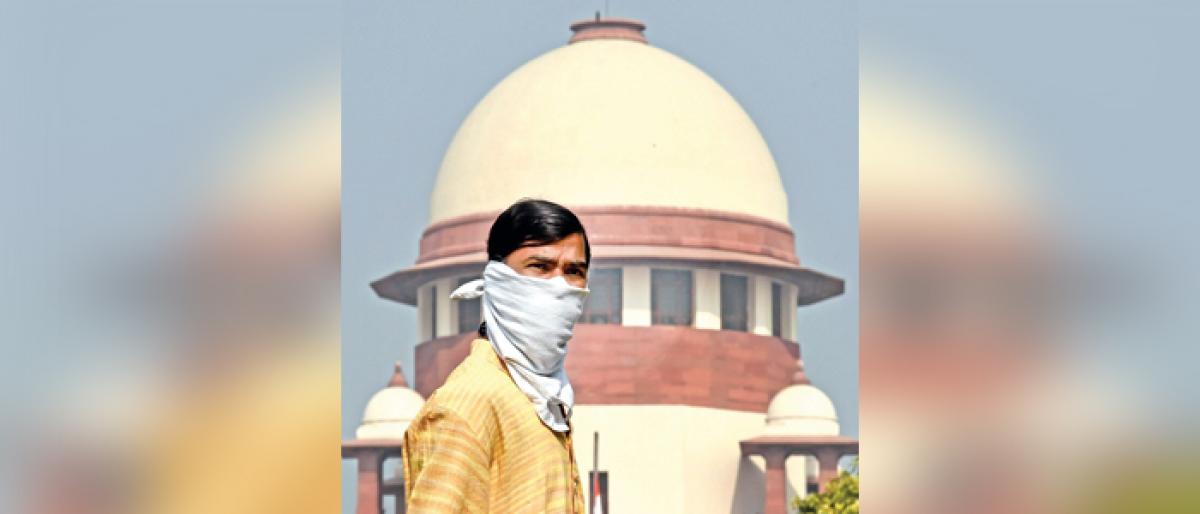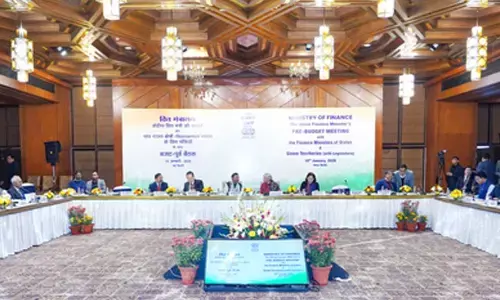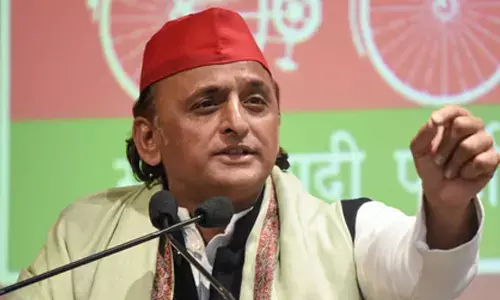Delhi air quality still toxic

The air quality of Delhi and regions around it remained toxic between severe and verypoor levels even five days after Diwali, with weather conditions expected to be unfavourable till at least November 15
- Improvement likely after three days
New Delhi: The air quality of Delhi and regions around it remained toxic between "severe" and "very-poor" levels even five days after Diwali, with weather conditions expected to be unfavourable till at least November 15.
The Air Quality Index (AQI) of Delhi was 399 at 4 p.m. considered "very-poor", which by 6 pm worsened to 404 considered "severe".
On Monday, the national capital saw variable winds with dry and cold north-westerly in the noon which improved the air quality. However by the evening, winds changed into moist easterly. According to weather analysts, the weather conditions are expected to remain same till November 15.
With persistent threats of adverse health effects since Diwali, the System of Air Quality and Weather Forecasting And Research (SAFAR) on Monday cautioned people again against doing strenuous outdoor physical activities.
"If asthmatic, keep relief medicine handy... Stop outdoor activity early morning and after sunset. Go for a short walk instead of a jog and take more breaks. Stop any activity level if you experience any unusual coughing, chest discomfort, wheezing, breathing difficulty, or fatigue," SAFAR warned.
Satellite images by SAFAR showed moderate stubble burning fire count that is contributing to 7 per cent pollution at PM2.5 in Delhi. Authorities have attributed the dip in air quality to unfavourable weather conditions like low wind speed.
The Centre-run System of Air Quality and Weather Forecasting (SAFAR) said it is likely to improve further by Tuesday but will remain in very poor category. "The stubble related impact continues to remain nominal due to slow transport height winds," the SAFAR said.
The Supreme-Court appointed EPCA allowed entry of only those vehicles into the city which are stranded at Delhi borders, anticipating the situation getting out of hand with the owners of over a 1,000 trucks getting "restive", while asserting that they will be exempt from paying toll or Environment Compensation Charge (ECC) from 11 pm on Monday to 7 am on Tuesday.
They said by relaxing the payment of toll-ECC, the trucks can move without any stop and this will reduce congestion and reduce pollution. The Environment Pollution Control Authority (EPCA), however stated that "no new trucks" will be allowed to enter the national capital in the wake of the deteriorating air quality.
On Monday, apart from Gurugram (AQI 191 or moderate), all other regions in NCR suffered a severe air quality with AQI 411 in Noida, 423 in Ghaziabad, 401 in Greater Noida and 454 in Faridabad, on a scale of 0 to 500.
The major pollutant PM2.5 or particles with diameter less than 2.5mm, were well above severe levels across Delhi-NCR.
At 6 pm, the average aggregation of PM2.5 across 36 stations was 271 microgrammes per cubic meters, while the same acorss 49 areas of NCR was 265 units.
Chandni Chawk, Pitampura, Delhi University, Dhirpur and Mathura Road, among other, were the most polluted regions with PM2.5 well above 430 units by the evening.
The safe limit for PM2.5 is 60 units as per national standards and 25 units according to the international standards.
"Both PM2.5 and 10 get into the lungs and cause cardiovascular and respiratory diseases, but PM2.5 is more dangerous because it mixes with blood stream," Shambhavi Shukla, Senior research associate with the Centre for Science and Environment (CSE), told IANS.
She said some international studies have noted that particle pollutants have a direct effect on life expectancy.















